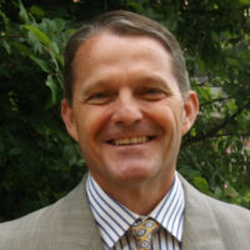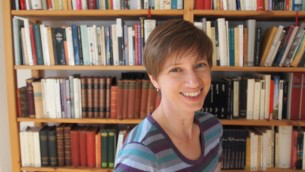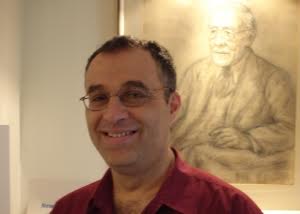2016-17 Colloquia

Research Colloquium with Dr. John K. Roth
Belk Library and Information Commons
Wednesday, March 1, from 12:00 until 2:00 pm
An RSVP is required. To do so, please contact holocaust@appstate.edu or call 828.262.2311
The Center for Judaic, Holocaust and Peace Studies invites the ASU community to its fourth research colloquium of year. This colloquium will provide ample opportunities to discuss the work of Dr. John K. Roth, Edward Sexton Professor Emeritus of Philosophy, Claremont McKenna College. Dr. Roth is an eminent Holocaust Studies scholar and highly prolific author, who has written, co-authored, or edited more than fifty books. The event will focus on two chapters from his more recent scholarly output, in particular on confrontations with torture and death during the Holocaust. The lunch colloquium with Dr. Roth will take place at Belk Library and Information Commons on Wednesday, March 1, from 12:00 until 2:00 pm.
Like the previous colloquia in the series, the meeting with Dr. Roth is open to the ASU faculty, students, and staff. The colloquium is based on a couple of pre-circulated recent articles and/or chapters by the visiting scholar. The meeting also offers the opportunity to participating members of the ASU community, who work on related topics, to address questions about their own work and get expert feedback. The colloquium is two hours in duration and includes a free lunch. Participants can attend the entire meeting or only part of the session. An RSVP is required. To do so, please contact holocaust@appstate.edu or call 828.262.2311.
Professor Roth served as the Founding Director of the Center for the Study of the Holocaust, Genocide, and Human Rights (now the Center for Human Rights) at Claremont McKenna College. He has published hundreds of articles and reviews as well as numerous books, including Approaches to Auschwitz; Ethics During and After the Holocaust; The Oxford Handbook of Holocaust Studies; Rape: Weapon of War and Genocide; Encountering the Stranger: A Jewish-Christian-Muslim Trialogue; The Failures of Ethics: Confronting the Holocaust, Genocide, and Other Mass Atrocities; and Losing Trust in the World: Holocaust Scholars Encounter Torture. Roth has been Visiting Professor of Holocaust studies at the University of Haifa, Israel. He has also been honored with a Koerner Visiting Fellowship at the Oxford Centre for Hebrew and Jewish Studies in England and as the Ina Levine Invitational Scholar at the Center for Advanced Holocaust Studies, United States Holocaust Memorial Museum. In addition to holding several honorary degrees, Roth was named the 1988 U.S. National Professor of the Year by the Council for Advancement and Support of Education and the Carnegie Foundation for the Advancement of Teaching. Besides serving on the United States Holocaust Memorial Council, he also has received the Holocaust Educational Foundation's Distinguished Achievement Award for Holocaust Studies and Research.
Dr. Roth's visit is organized by the Center for Judaic, Holocaust and Peace Studies in close cooperation with Davidson College's Vann Center for Ethics, the Greenspon Center for Peace and Social Justice at Queens University, and the Center for Holocaust, Genocide and Human Rights Studies at UNC Charlotte. The Department of Philosophy and Religion and the university's Hillel chapter are co-sponsoring the event.

Book Discussion of Edward Westermann's Hitler's Ostkrieg and the Indian Wars
Faculty, students, and staff are invited to discuss Dr. Edward Westermann's recent book, Hitler's Ostkrieg and the Indian Wars: Comparing Genocide and Conquest (University of Oklahoma, 2016) on February 3, 9-11AM, 421 Belk Library. Please RSVP by email to holocaust@appstate.edu or phone to 828.262.2311. Participants will receive a complimentary copy of the book. Dr. Westermann's visit is sponsored by the Humanities Council and the Center for Judaic, Holocaust, and Peace Studies.
In Hitler's Ostkrieg and the Indian Wars, Westermann critically examines the parallels Hitler drew between the Nazi quest for Lebensraum in Eastern Europe and the westward expansion of the United States known as Manifest Destiny. Westermann shows how both projects linked national identity with racial stereotypes in order to justify a politics of exclusion and violence. He also identifies crucial differences between these projects of national expansion.
Westermann's book has been described as "comparative history at its best." One reviewer writes: "This thoughtful, provocative book compares the Nazi occupation of Eastern Europe with the United States' conquest of the American West. Its insights and conclusions are sure to stimulate new debates among a broad array of scholars." Robert Wooster, author of The American Military Frontiers: The United States Army in the West, 1783–1900
Edward Westermann is Professor of History at the University of Texas—San Antonio. He received his PhD from the University of North Carolina, Chapel Hill in 2000. He was a Fulbright Fellow at the Free University of Berlin, a German Academic Exchange Service fellow on three occasions, as well as a fellow at the US Holocaust Memorial Museum. Dr. Westermann also the author of Hitler's Police Battalions: Enforcing Racial War in the East (2006), and numerous articles and chapters. He is a retired US Air Force Colonel with 25 years of service.

Research Colloquium with Prof. Ruth von Bernuth (UNC Chapel Hill)
After a successful research colloquium with Prof. Guy Miron from Jerusalem, the Center for Judaic, Holocaust and Peace Studies invites the ASU community to its second colloquium of the 2016-17 academic year. This colloquium will focus on the work of Jewish Studies scholar Professor Ruth von Bernuth (UNC-Chapel Hill), especially her studies of Jewish conversion and identity and the carnivalesque in early modern Ashkenaz. The lunch colloquium with Professor von Bernuth will take place at Plemmons Student Union on Wednesday, November 16, from 11:00 am until 1:00 pm.
Like the previous colloquia, the meeting with Professor von Bernuth is open to the ASU faculty, students, and staff. The colloquium is based on a couple of pre-circulated recent articles and/or chapters by the visiting scholar. The meeting also offers the opportunity to participating members of the ASU community working on related topics to address questions about their own work and get expert feedback. The colloquium is two hours in duration and includes a free lunch. Participants can attend the entire meeting or only part of these sessions. An RSVP is required. To do so, please contact holocaust@appstate.edu or call 828.262.2311.
Professor von Bernuth serves as the director of the Carolina Center for Jewish Studies at UNC-Chapel Hill, the most successful Jewish Studies Center in the UNC system. She is also an Associate Professor at UNC's Department of Germanic and Slavic Languages and Literatures, which she joined in 2008. Professor von Bernuth holds a Ph.D. in medieval and early modern German literature from Humboldt University in Berlin, Germany (2005). She is also the author of Wunder, Spott und Prophetie: Natürliche Narrheit in den Historien von Claus Narren, a study of ideas of natural folly in early modern German literature.
Professor von Bernuth's visit is organized by the Center for Judaic, Holocaust and Peace Studies and co-sponsored by ASU's Department of Languages, Literatures, and Cultures, the Department of Anthropology, the Department of Philosophy and Religion and the university's Hillel chapter.

Research Colloquium with Prof. Guy Miron (Open University/Yad Vashem/Leo Baeck Institute)
Last academic year, the Center for Judaic, Holocaust and Peace Studies launched a new research colloquium series to feature and discuss the research of scholars working on Judaism, the Holocaust, and modern genocides. These events are open to the ASU faculty, students, and staff. The colloquia are based on a couple of pre-circulated recent articles and/or chapters by a visiting scholar or member of the ASU community. At the same time, these meetings also offer the opportunity to participating ASU faculty, students and staff working on related topics to address questions about their own work and get expert feedback. The colloquia are two hours in duration and include a free lunch. Participants can attend the entire meeting or only part of these sessions.
The Center is pleased to invite the ASU community to the next colloquium with Professor Guy Miron, who will be coming to Boone from Jerusalem. It will take place in Belk Library on Wednesday, November 2, from 12:00 am until 2:00 pm. The lunch—free of charge to participants—will be served at 12:00 noon. The session will focus on two of Prof. Miron's recent articles on German-Jewish and Holocaust history and the significance of space and time.
Professor Guy Miron is one of Israel's most prominent Holocaust scholars of the generation that followed the field's founding cohort of Dan Michman, Yehuda Bauer and the late Israel Gutman. He is Professor of Jewish History and Chair of the Department of History, Philosophy and Jewish Studies at the Open University of Israel. He is also the director of the Research Center for the Study of the Holocaust in Germany at the International Institute for Holocaust Research at Yad Vashem, the World Center for Holocaust Research, Documentation, Education and Commemoration in Jerusalem. Furthermore, Professor Miron is the head of the Research and Publications Committee of the Leo Baeck Institute for the Study of German and Central European Jewry. His important publications include German Jews in Israel: Memories and Past Images (in Hebrew, 2004); and The Waning of the Emancipation, Jewish History, Memory, and the Rise of Fascism in Germany, France, and Hungary (2011). His visit is part of the Center for Judaic, Holocaust and Peace Studies' ongoing international outreach and research collaborations.
Since space at the colloquium is limited, we require interested ASU faculty, students, and staff members to RSVP by sending an email to thomaspegelowkaplan@appstate.edu or calling 828.262.2311. They will then also receive more information and copies of Professor Miron's articles.